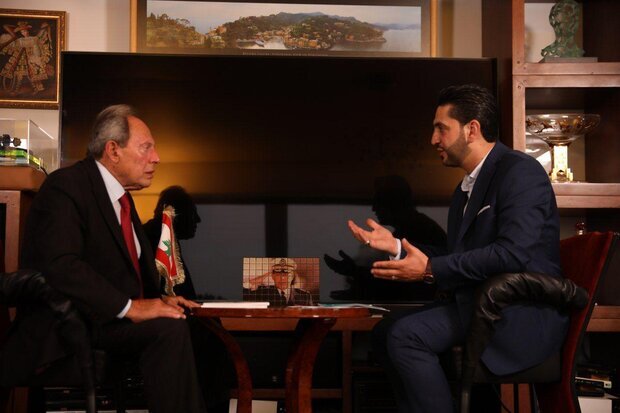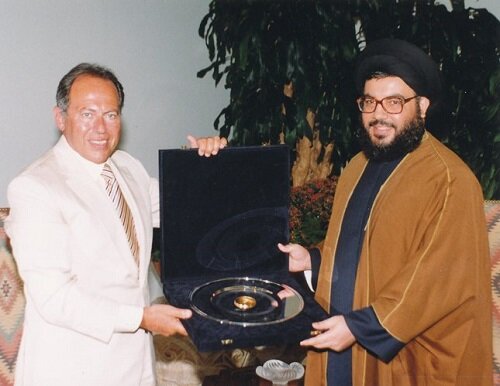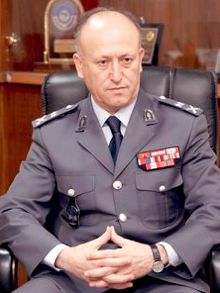The Syrian regime-change war and Lebanon’s economic collapse happened under Saad Hariri’s watch, but the Future Movement leader is seldom mentioned for the pivotal role he played in Lebanon’s unravelling


In 2005, US neoconservatives centered around then-Vice President Dick Cheney’s office began collaborating with Saudi Prince Bandar bin Sultan, defected former Syrian Vice President Abd Al-Halim Khaddam, and the Syrian Muslim Brotherhood to topple the Syrian government.
Washington did so as part of an effort to topple the governments of seven countries in five years, including Libya and Iran, using the so-called ‘War on Terror’ as a pretext.
However another crucial, though overlooked collaborator in the regime change effort was pro-Saudi Lebanese politician Saad Hariri. And his actions would soon see massive repercussions unfold in his own country.
The dynastic Hariris
In 2005, Saad’s father, former Lebanese prime minister Rafiq Hariri, was assassinated in a massive car bombing, which a highly-politicized UN-backed court pinned on two individuals affiliated with Lebanese resistance group Hezbollah. In the wake of Rafiq’s death, Saad came to head not only the Saudi-supported Future Movement – Lebanon’s leading Sunni political party – but also the multi-billion-dollar Hariri business conglomerate established by his father in Saudi Arabia.
Initially, the US, French, and Israeli governments quickly blamed Syria for Rafiq’s killing. Presumably, Saad was motivated to participate in the US-led regime change effort in Syria as a result.
But business interests also played a role as Saad wished to gain control over Syria’s telecommunication sector. This is something his father had previously tried, but failed to accomplish.
As French journalist Georges Malbrunot details in his book The Road to Damascus, Syria first launched its mobile phone industry in the early 2000’s, and Lebanon’s prime minister at the time, Rafiq Al-Hariri, wanted to invest in one of the two Syrian companies that had just been created for this purpose.
But Rami Makhlouf, cousin of Syria’s President Bashar Al-Assad and the dominant investor in the sector, blocked Rafiq’s efforts. Malbrunot notes further that according to a lawyer close to the Syrian government, “there was an immediate veto from the intelligence services against Hariri.”
While the Baath Party may have considered the telecommunications sector to be of strategic importance – and therefore not open to outsiders – Assad would have also been concerned about Hariri’s direct role in bribing top Syrian officials, including then-Vice President Abdul Halim Khaddam, prior to his defection, among a broad slate of other grievances.
In the wake of Rafiq’s assassination, Saad was quick to pick up his father’s baton. At the time the Christian Science Monitor reported that:
“[Saad Hariri] may be a newcomer to Lebanese politics, but Hariri is no neophyte. He ran his father’s massive construction company, Saudi Oger, for over a decade and has extensive financial interests in telecommunications in the Middle East. He is ranked at 548 in Forbes Magazine’s annual list of billionaires with an estimated fortune of $1.2 billion. His father was ranked 108th with $4.3 billion. Hariri has adopted his father’s globe-trotting existence, holding talks with Jacques Chirac, the French president and a close family friend, Vice President Dick Cheney, and Middle East leaders.”
Saad’s support of Salafi-jihadists
In addition to running his deceased father’s business conglomerate, Saad was active in protecting Al-Qaeda affiliated militant groups in Lebanon. Journalist Seymour Hersh notes that according to a 2005 International Crisis Group (ICG) report, Hariri had helped release four Salafist militants from prison who had previously trained in Al-Qaeda camps in Afghanistan and were arrested in Lebanon while trying to establish an Islamic state in the north of the country.
Hariri also used his influence in parliament to obtain amnesty for another 29 Salafist militants, including seven suspected of bombing foreign embassies in Beirut a year prior. Hersh notes that according to a senior official in the Lebanese government, “We have a liberal attitude that allows Al-Qaeda types to have a presence here.”
In the wake of the radical Fatah Al-Islam’s 2007 battle with the Lebanese army, which destroyed the Nahr Al-Bared Palestinian refugee camp, Charles Harb of the American University of Beirut (AUB) observed that Saad was giving “political cover” to “radical Sunni movements” that could be directed and employed against the Resistance Axis of Iran, Syria, and Hezbollah.
Harb also noted the involvement of Saudi intelligence in cultivating these groups. He explained that “Several reports have highlighted efforts by Saudi officials to strengthen Sunni groups, including radical ones, to face the Shia renaissance across the region. But building up radical Sunni groups to face the Shia challenge can easily backfire.”
Start of the ‘Syrian Revolution’
In early 2011, US planners exploited dissatisfaction among certain segments of Syrian society – not only pro-western liberals but also the country’s Salafi community – to spark initial ‘Arab Spring’ type protests in the country.
Saad Hariri’s interest in gaining control of the Syrian telecommunication network via any successful regime-change operation was hinted at during the first protest in Daraa, a predominantly Sunni governorate, on 18 March, 2011.
As Syrian sociologist Muhammad Jamal Barout revealed, protestors in Daraa chanted against Rami Makhlouf and demanded that his businesses be expelled from the province (recall that Makhlouf held the dominant position in Syria’s telecommunications sector).
Salafist militants, including from Al-Qaeda in Iraq (AQI), quickly began attacking Syrian security forces under the cover of the early protests. US planners facilitated these attacks (with the help of Prince Bandar), in the hope of unleashing a sectarian civil war on the country comparable to that which had destroyed Iraq starting in 2003.
The Future Movement and Salafi terror
Prominent opposition and human rights activist Haitham Manna provided evidence that elements close to Saad Al-Hariri were among those funneling weapons to the Salafist militants in Syria, including in Daraa, in part to secure financial interests.
According to Muhammad Jamal Barout, Manna’ publicly disclosed in an interview on Al-Jazeera on 31 March, 2011, that “he had received offers to arm movements from Raqqa to Daraa three times by parties he did not identify in the interview.”
Barout additionally writes that, according to Manna, there were secret communications between some Syrian businessmen abroad who found themselves bent on revenge against the Assad government because their interests had been harmed by the network of the pro-government businessman Makhlouf.
Furthermore, these groups were willing to fund and arm opposition movements throughout the country. Barout notes that these businessmen apparently had relations with professional networks capable of delivering weapons to any location in Syria and that some members of the Future Movement in Lebanon were among those arranging these weapons shipments.
One name pops up more than others: Okab Sakr, the MP from Hariri’s Future movement made infamous in phone conversations leaked to Lebanese media outlet Al Akhbar, in which he directly discusses large weapons transfers to Syrian militants.
Writes The Guardian of Hariri’s close confidant: “Every time Okab is in town the weapons start to move across the border,” said a rebel colonel from the Jebel al-Zawiya region, who calls himself Abu Wael.
Sakr eventually fled the country to avoid repercussions for his illicit activities, and admitted to his role in arming the Syrian conflict, which dragged Lebanon into the messy and dangerous fray.
Within no time, Fatah Al-Islam and other militants previously under the protection of Hariri and Saudi intelligence in Lebanon were soon identified on the battlefield in Syria. Dr. Haytham Mouzahem, director of the Beirut Center for Middle East Studies explained that, “When the uprising in Syria began in 2011, many of the remaining Fatah al-Islam members crossed the border and joined groups in the Free Syrian Army [FSA].”
This provided one indication among many that the FSA – as it was known then – was not secular, democratic, or comprised primarily of army defectors, as is often claimed, but rather consisted primarily of Salafist militants, including many affiliated with Al-Qaeda.
The role of Al-Qaeda militants from Lebanon came further into focus in the summer of 2011, when Der Spiegel reported that a prominent Salafist cleric in Tripoli was sending fighters into Syria as early as summer 2011 because, in his view, “Assad is an infidel” and “There is a holy war in Syria and the young men there are conducting jihad. For blood, for honor, for freedom, for dignity.”
According to one of the fighters interviewed by the German magazine, around 60 percent of the Lebanese fighters crossing the border from Tripoli to Homs had previously fought in Iraq.
Syrian fallout: Refugees flood into Lebanon
As the months and years passed, more and more jihadists flooded into Syria. As they did, and as fighting with the Syrian army and its allies intensified and became more brutal and sectarian, more and more Syrian civilians flooded into Lebanon to flee the conflict back home.
With the onset of war in Syria in 2011 and subsequent US sanctions, the Syrian economy began to massively contract, which in turn caused the closely connected Lebanese economy to gradually slow as well.
Given that Lebanon is a small country facing its own disastrous economic crisis, it has been unable to provide decent living conditions for even its own 5.5 million residents, let alone for the 1.7 million Syrian refugees present in the country.
Because US planners, along with their many regional collaborators including Qatar, Saudi Arabia, Turkey, Lebanon and others, launched a dirty war on Syria in 2011 causing millions of Syrians to flee their homes and seek refuge in bordering states, it is the US and its close allies that bear most of the responsibility for the current refugee crisis Lebanon now faces.
Accommodating such a large number of refugees would always be difficult, but this became near impossible after the October 2019 Lebanese banking crisis, which in turn caused what the World Bank described as a “brutal” economic contraction of a magnitude “usually associated with conflicts or wars.” Even relatively prosperous and middle-class Lebanese were plunged into poverty, losing most of their life savings, as the Lebanese lira quickly plunged.
A Hariri legacy: Lebanon’s economic collapse
The origins of the crisis can be traced to the creation of a banking infrastructure based on efforts to maintain a currency peg between the Lebanese lira and US dollar.
This system was established by Lebanese central banker Riad Salameh in the 1990’s in the wake of the Lebanese civil war, presumably to restore economic stability needed after the wild currency swings seen throughout the conflict.
Then-prime minister Rafiq Hariri had appointed Salameh – his personal money manager at US brokerage firm Merrill Lynch – as governor of Lebanon’s Central Bank.
To maintain the peg, Salameh effectively established a Ponzi scheme that enriched wealthy Lebanese as well as the bankers themselves. As the New York Times explained:
“Lebanon’s Central Bank promised that 1,507 Lebanese lira would be worth exactly $1 and that Lebanese banks would always exchange one for the other. That policy brought stability, but it also required Lebanon’s banks to hold a large store of U.S. dollars . . . so the banks could make good on the promise to exchange 1,507 lira for $1 at any point. Lebanese firms also needed dollars to pay for imported goods, a large part of the economy in a country that produces little of what it consumes. . . . To keep dollars flowing in, the head of Lebanon’s Central Bank developed a plan: Banks would offer very generous terms — including an annual interest of 15 percent or even 20 percent — to anybody who would deposit dollars. But the only way for banks to make good on these terms was by repaying the initial depositors with money from new depositors. Of course, there is a name for this practice: a Ponzi scheme.”
The receipt of such high interest rates on deposits allowed wealthy Lebanese both at home and abroad to slowly loot the country. Commercial bankers benefitted as well, by receiving a handsome spread on the interest rate paid by the central bank and forwarded to depositors. The Hariri family benefited directly from the system, both as owners of huge US dollar deposits as well as owners of their own commercial bank, Bankmed.
Riad Salameh personally benefitted from the system as well, setting up a brokerage firm with his brother, Forry Associates, that took some $330 million in fees for brokering the sale of government bonds between 2002 and 2015, $200 million of which were allegedly transferred to Salemeh’s personal accounts with various Lebanese banks, including with Hariri’s Bankmed. These transfers led to the ongoing investigation of Salemeh by European officials on charges of money laundering and embezzlement.
As the protracted Syrian war – aided by Hariri and his allies -across Lebanon’s only viable land border tore into Lebanon’s fragile economy, and the flow of new US dollars entering the Lebanese banking system also began to slow, Salameh’s Ponzi scheme became unsustainable, and finally began to collapse in October 2019.
Lebanese banks began to restrict US dollar withdrawals for small depositors to minor amounts, while secretly allowing wealthy and connected clients to pull out huge sums for transfer abroad. Soon, small depositors, who had themselves deposited dollars, were restricted to withdrawing an unreasonable equivalent in Lebanese liras instead.
The value of the lira quickly dropped by some 90 percent, wiping out the life savings of many and causing mass poverty as prices of everything, including essential goods, skyrocketed. According to banker and political commentator, Ehsani, the total losses for depositors amount to roughly $111 billion.
According to Syria’s President Assad, some $40 billion of those frozen deposits may be of Syrian origin, with huge negative ramifications for the country’s finances and reconstruction efforts.
The October 2019 economic collapse was accompanied by wide-spread protests expressing anger against Lebanon’s broader political class, pressuring Saad Hariri to step down as prime minister.
Despite the key role played by the Hariri-Salameh political clique in establishing, benefitting from, and finally collapsing the Lebanese banking system, and subsequently the entire economy, both Hariri and Salameh continue to enjoy diplomatic and political support from their backers in Washington.
In February 2020, amidst criticism of Salameh’s role in precipitating the crisis, US ambassador to Lebanon Dorothy Shea suggested to Lebanese TV it was “a mistake to scapegoat any one person or institution for Lebanon’s economic collapse” and that Salameh, still “enjoys great confidence in the international financial community.”
The reason for this was provided, at least in part, in April 2019 when Lebanese newspaper Al-Akhbar published minutes of a meeting between the US Assistant Secretary of the Treasury for Terrorism Financing and Financial Crimes, Marshall Billingsley, and the (former) Lebanese Economy Minister, Mansour Bteish. The minutes cite a US official saying:
“We need a governor of the Banque du Liban [central bank] and a deputy governor who we can trust, and who is sensitive and with whom confidential information about terrorist financing and money laundering can be exchanged. The situation today is that we trust Governor Riad Salameh and (former) Deputy Governor Muhammad Baasiri.”
As US planners have not been fighting terrorism, but rather funding and arming al-Qaeda affiliated groups to use as proxies in their war against Syria between 2011 and 2017, this suggests Salameh continues to enjoy US protection to avoid details of terrorist financing, in particular Saad Hariri’s role in arming terrorist groups in Syria on behalf of US planners, from coming to light.
It is difficult to imagine that Lebanon can emerge from its current crisis, or deal with corruption and poor governance plaguing the country, while US influence over Lebanese affairs remains dominant and oppressive US sanctions against Syria remain in place.
The views expressed in this article do not necessarily reflect those of The Cradle.
Filed under: Al Qaeda, France, House of Saud, Lebanon Islamic Resistance - Hezbollah, Qatar, Syria, Syrian President Bashar Al-Assad, USA | Tagged: American "Muslim" Brotherhood, Der'ah, Dick Cheney, FSA, Future Movement, Hariri assassination, Homs, Khaddam, KSA, Leb Central Bank, Riad Salameh, Saudi Intelligence Chief Price Bandar bin Sultan, Seymour Hersh, Terrorist Iqab Saqr, The Axis of Resistance | Comments Off on Saad Hariri and the collapse of Lebanon





















 ان الذي صادف أنه يتكلم العربية، وصادف أنه تربى تربية عسكرية، صادف أنه لا يهمل ما يقوله قلبه وإحساسه حتى إن تعارض مع العقل، كما صادف أنه يخاف، لكن خوفه لا يمنعه من التصرف” تقول رغدة بثقة في لقائنا بها إبان زيارتها لدمشق، الزيارة التي لم تكن سوى محطة مؤقتة في مشروعها الخاص لهذه الزيارة : حلب!
ان الذي صادف أنه يتكلم العربية، وصادف أنه تربى تربية عسكرية، صادف أنه لا يهمل ما يقوله قلبه وإحساسه حتى إن تعارض مع العقل، كما صادف أنه يخاف، لكن خوفه لا يمنعه من التصرف” تقول رغدة بثقة في لقائنا بها إبان زيارتها لدمشق، الزيارة التي لم تكن سوى محطة مؤقتة في مشروعها الخاص لهذه الزيارة : حلب! – رغدة الروحانية التي كانت في حلب، هل ما زالت في داخلك؟
– رغدة الروحانية التي كانت في حلب، هل ما زالت في داخلك؟ * لا شك بأنها مؤامرة، مؤامرة محبوكة قبل 2011 بزمن طويل.
* لا شك بأنها مؤامرة، مؤامرة محبوكة قبل 2011 بزمن طويل.



 Of course, loyal Ba’ath Party members from the old guard like ‘Abdullah Al-Ahmar, Rustom Ghazaleh, Wa’el Mu’allem, and Farouq Al-Sharaa’ retained their respectful roles in the future government; however, for the first time in three decades, men like Mustafa Tlass and ‘Abdel-Haleem Khaddam were not included in any governmental position – why?
Of course, loyal Ba’ath Party members from the old guard like ‘Abdullah Al-Ahmar, Rustom Ghazaleh, Wa’el Mu’allem, and Farouq Al-Sharaa’ retained their respectful roles in the future government; however, for the first time in three decades, men like Mustafa Tlass and ‘Abdel-Haleem Khaddam were not included in any governmental position – why? ‘Abdel-Haleem Khaddam has a long-standing history with the Saudi Royal Family: from the time he spent in Saudi Arabia during the 1989 Taif Agreement, to his friendship – both politically and monetarily – with the late Lebanese Prime Minister, Rafic Hariri; Khaddam gained considerable influence over the Saudi royals, who viewed him as a trusted friend and ally.
‘Abdel-Haleem Khaddam has a long-standing history with the Saudi Royal Family: from the time he spent in Saudi Arabia during the 1989 Taif Agreement, to his friendship – both politically and monetarily – with the late Lebanese Prime Minister, Rafic Hariri; Khaddam gained considerable influence over the Saudi royals, who viewed him as a trusted friend and ally. Yes, the uncertainty of who was behind the assassination of Rafic Hariri had greatly affected Khaddam’s demeanor, but his discontent with Dr. Bashar Al-Assad did not begin overnight; in fact, his earliest objections to President Assad’s policies began in 2001, when Syria
Yes, the uncertainty of who was behind the assassination of Rafic Hariri had greatly affected Khaddam’s demeanor, but his discontent with Dr. Bashar Al-Assad did not begin overnight; in fact, his earliest objections to President Assad’s policies began in 2001, when Syria 









,+Syria's+President+Bashar+al-Assad+(C)+and+Iran's+President+Mahmoud+Ahmadinejad+(L)+attend+official+dinner+Damascus+February+25,+2010..jpg)






















 Journalism was Jim Wall’s undergraduate college major at Emory University, Atlanta, Georgia. He has earned two MA degrees, one from Emory, and one from the University of Chicago, both in religion. An ordained United Methodist clergy person; he and his wife, Mary Eleanor, are the parents of three sons, and the grandparents of four grandchildren. They live in Elmhurst, Illinois.
Journalism was Jim Wall’s undergraduate college major at Emory University, Atlanta, Georgia. He has earned two MA degrees, one from Emory, and one from the University of Chicago, both in religion. An ordained United Methodist clergy person; he and his wife, Mary Eleanor, are the parents of three sons, and the grandparents of four grandchildren. They live in Elmhurst, Illinois.























